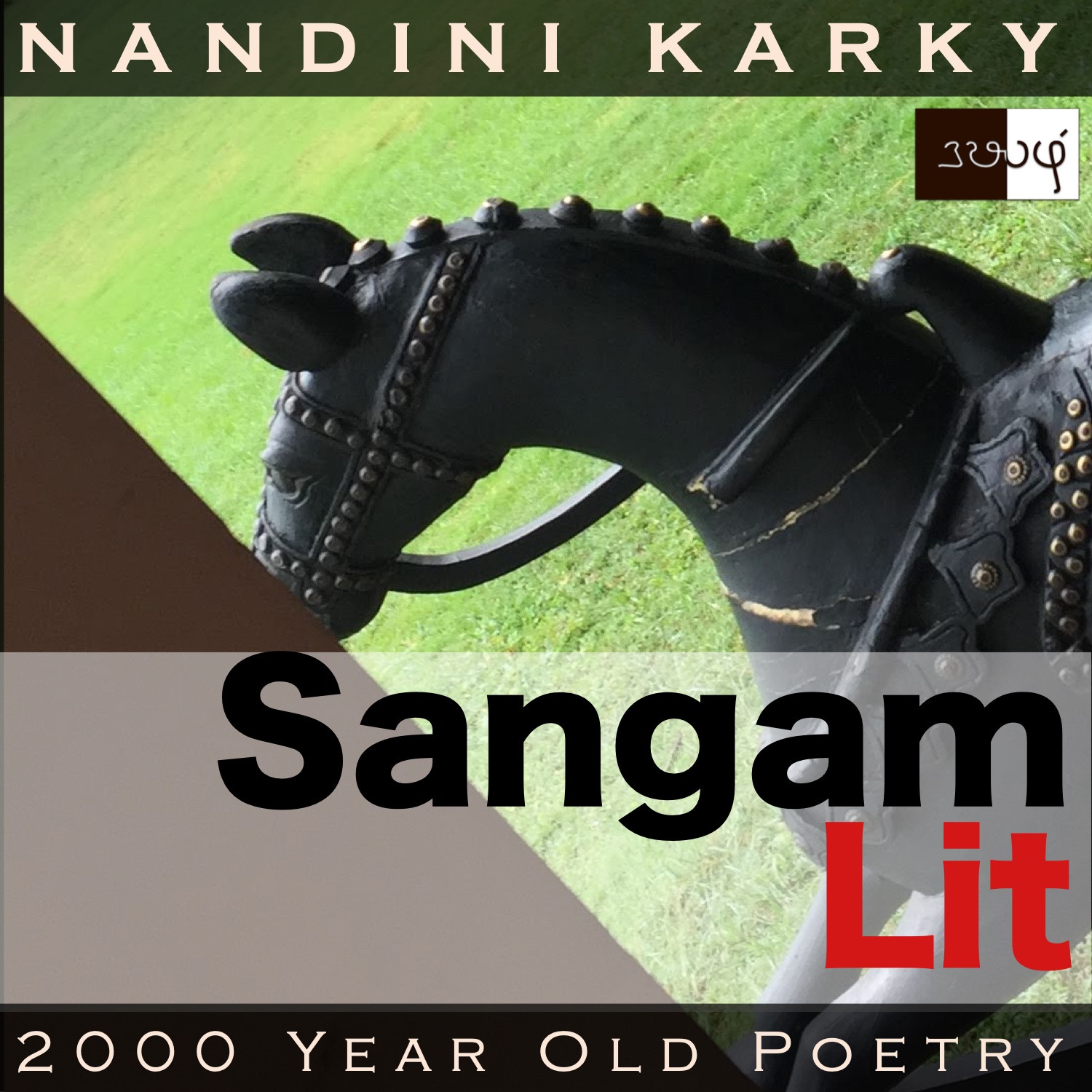Podcast: Play in new window | Download
Subscribe: Apple Podcasts | Spotify | Amazon Music | Android | iHeartRadio | TuneIn | RSS | More

In this episode, we perceive a social custom and its implications, as portrayed in Sangam Literary work, Kurunthogai 14, penned by Thol Kabilar. Set in the mountains of ‘Kurinji’, the verse speaks in the voice of the man to the confidante, in a subtle threat about his course of action, after her rejection of his request.
அமிழ்து பொதி செந் நா அஞ்ச வந்த
வார்ந்து இலங்கு வை எயிற்றுச்சில் மொழி அரிவையைப்
பெறுகதில் அம்ம, யானே! பெற்றாங்கு
அறிகதில் அம்ம, இவ் ஊரே! மறுகில்,
”நல்லோள் கணவன் இவன்” எனப்
பல்லோர் கூற, யாஅம் நாணுகம் சிறிதே.
A case of the unspeakable being spoken! Speaking of which, the verse opens with the words ‘அமிழ்து பொதி செந் நா’ meaning ‘red tongue, filled with elixir’, bringing to fore, the organ in question. Anxiety throbs in the words ‘அஞ்ச வந்த’ meaning ‘causing fear’. Yet again, the expression ‘sharp teeth’ makes an appearance in ‘வை எயிற்று’. The essence of a young girl is captured in the portrait ‘சில் மொழி அரிவை’ meaning ‘young maiden, who’s one of few words.’ Action unfolds in ‘மறுகில்’ meaning ‘in the streets’. Ending with the words ‘யாஅம் நாணுகம் சிறிதே’ meaning ‘we will feel a little ashamed’, the verse invites us to listen closely to the intricate emotions within.
Why this talk of shame? The context reveals that the man had met the lady and fallen in love with her. As was the custom then, he sought to win the confidante’s confidence to further his relationship with the lady. However, this friend of the lady refuses to heed to the man’s requests. So, one day, the man tells her, “That red tongue of the young girl, filled with nectar, fears those close-set, shining, sharp teeth and speaks but words few. Listen, I will gain her, for sure. When I gain her, this town too, will know of it. But, in the streets, when many say ‘he is that good girl’s husband’, we would feel a little embarrassed!” With these words, the man threatens to choose a drastic path to win over the lady.
To understand the significance of these words, we need to delve into the practice of ‘Madal eruthal’ or ‘Madal oorthal’, mentioned in Sangam Literature. This involves the man, who has been rejected in his love requests, making a horse out of palmyra leaves and riding on that, holding a painting of the lady in his hands, announcing to the town how he has been betrayed in love. Sometimes, the townsfolk would interfere on his behalf, to the lady’s parents and aid him in gaining his love. However, this was not deemed worthy of a man’s honour and was said to bring shame to the man and to besmirch the lady’s name as well. In this particular case, the dejected man speaks in praise of the lady’s nectar-filled tongue and as if it fears her shining, sharp teeth, it seems to utter only a few words. Then, he declares that he would get the lady indeed and when that happens, the whole town would know. This is where he places the threat that he intends to ride the palmyra horse. After relaying this intention, he says that although he may get what he wants, later when he and the lady are walking on the streets, people would point to him and recollect his days of climbing the palmyra horse, which in turn, would bring shame to both him and his lady.
Why make me take the complicated route of gaining the lady, when you can help me do that in a much simpler way, the man seems to be asking the confidante. Indeed, the man seems to be employing a practice that would not be considered right in the current times. But, they lived different lives, under different societal pressures, and it was their response then. When an archaeologist excavates a pot in a site, it’s not to cook from it, but to see a way of life. Like that, ancient literature tell us of life then, and are not always lessons to be followed in our times. In our current world, young men or women, thwarted in love, instead of taking such drastic steps, are better off, letting go of the one who doesn’t want them, and focusing on and nurturing their unique strengths.




//When an archaeologist excavates a pot in a site, it’s not to cook from it, but to see a way of life.// – nice and justifying example.